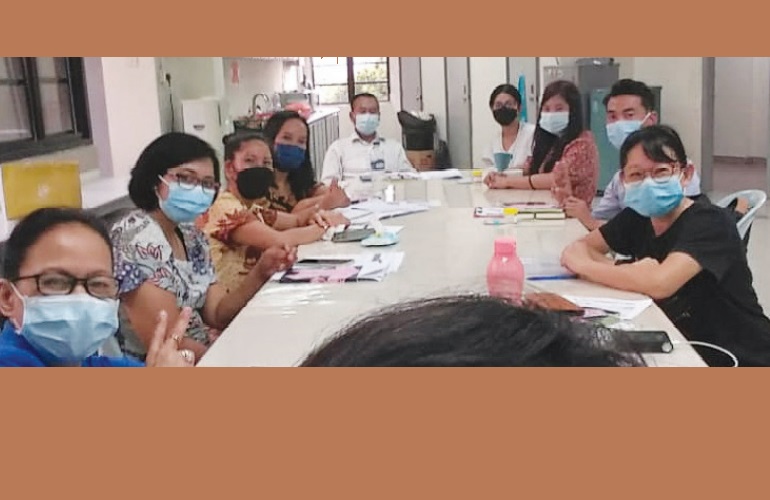Listening, but not being heard
Considering the synodal process, instituted by Pope Francis, the Kuala Lumpur Archdiocesan Office for Human Development (AOHD) arranged a dialogue session with leaders of several migrant and refugee communities to go through the Thematic Nuclei (TN).
Dec 11, 2021

By Gwen Manickam
Considering the synodal process, instituted by Pope Francis, the Kuala Lumpur Archdiocesan Office for Human Development (AOHD) arranged a dialogue session with leaders of several migrant and refugee communities to go through the Thematic Nuclei (TN).
AOHD Coordinator for Migrants and Refugees, Josephine Tey, met with leaders from Myanmar, Indonesia, Vietnam, and the Philippines to brief them on the synod process and to provide a basic explanation on each of the 10 TN.
After her explanation, the leaders chose Listening, Speaking Out, Celebrating, and Dialogue in Church and Society as the TNs they wanted to work on.
“We met once a week for four weeks to take our time and do one TN per week. On the first TN – Listening, the community leaders felt that although they had been sharing and explaining the scenarios they were going through — people were listening to them but they were not being heard.
Under the Speaking Out thematic – representatives of the migrants and refugees said they often felt like sheep without a shepherd. As it isn’t their country, they felt left out and didn’t know avenues to voice their issues. On occasions when they were vocal, they were not understood or treated accordingly. For example, when they offered suggestions to incorporate hymns from their country into a Mass liturgy, it was seldom considered or accepted. The community also said they were seldom offered a role in the Liturgical or Eucharistic ministry but instead only minuscule roles to serve in church like Hospitality Ministers. They also wished the priests could be more welcoming as well as accommodating to their needs, like being available on their off days – Sundays, to meet with members of the migrant and refugee community.
On the celebration thematic, the community expressed appreciation of the diocese’s efforts to cater to their pastoral needs during festivals like Christmas and Easter by bringing in a priest from their respective countries to celebrate Masses. Some non-Catholics also join in as it gives them a sense of home and belonging to worship in their mother tongue. Josephine said AOHD also brings in priests from their respective countries to carry out retreats for the community members during public holidays.
With regards to Dialogue in Church and Society, the priests often go into the kongsi or community to celebrate Mass and cater to their spiritual needs. The community representatives said, “We, as migrants, prefer a church that comes to us, rather than we go to church.” This is mostly because many are undocumented, and there is a fear of being caught or extorted when they venture out. Some also work on Sundays and are unable to attend service. They also mentioned that many of their young boys and girls are not rooted in their faith due to a lack of access to catechism and religious education. They are requesting training be provided for people within their community to become faith educators.
Josephine said, “The synod was timely. It’s not about completing the TN but the process itself. I feel it’s a bridge-builder between the archdiocese and the community. Moving forward, AOHD will play a more active role in the communities, and they intend to be part of the planning process for the individual communities’ activities for 2022. --







Total Comments:0